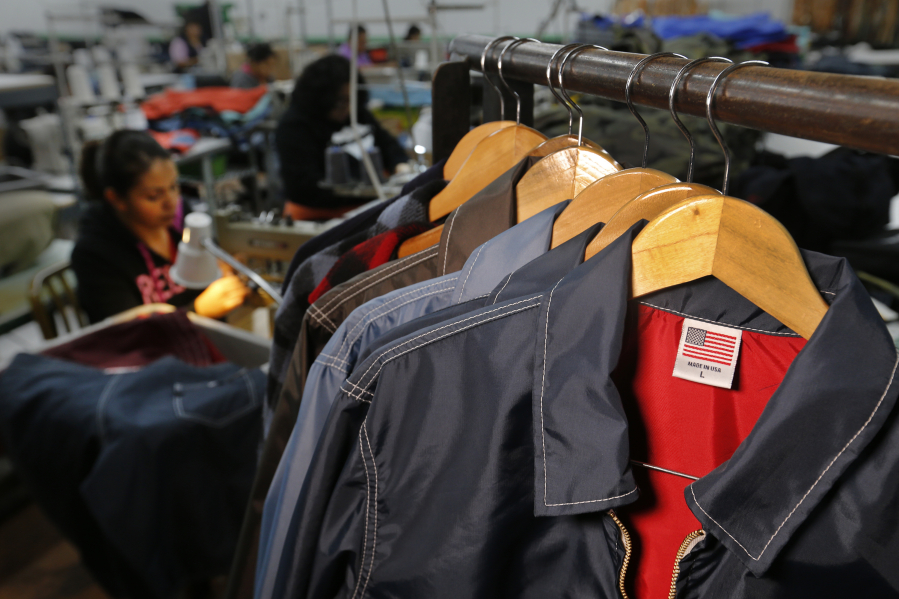LOS ANGELES — Buyers from all over the world flock to Gitman Bros. to get a piece of timeless American style: oxford shirts, plaids and repp ties often cut slightly slimmer to appeal to the trendy and urbane.
But when the company’s president, Chris Olberding, attended the venerable menswear trade show Pitti Uomo in Italy this month, the brand’s “Made in USA” label was an unexpected liability.
Clients flung jokes at the then-president-elect’s expense. There was talk about avoiding travel to the U.S. during Donald Trump’s four-year term. And one of the Ashland, Pa.-company’s accounts was almost canceled because a customer wanted to boycott American clothes.
“I felt like the wind got knocked out of me,” Olberding said in a phone interview from Florence. “I always thought it was a good thing to keep our production in the U.S., and all of a sudden the conversation changes because of this one person.”
By all appearances, Trump should be a boon for the “Made in USA” brand. The nation’s 45th president swept into office pledging to get American factories humming again.
“We will follow two simple rules: buy American and hire American,” Trump said during his inauguration speech.
But the negative reaction at Pitti Uomo underscores the pitfalls of these polarizing times. Trump by association can act as a double-edged sword.
Recession favorites
A backlash against American brands would be a painful and ironic twist for the apparel and footwear companies that have fought to keep production stateside against innumerable odds.
Long before Trump campaigned on the promise of reviving domestic manufacturing, time-tested labels such as Gitman Bros., Filson and Red Wing Shoes were touting their “Made in USA” roots and encouraging customers to buy American menswear at a time when competitors had long fled to cheaper countries.
They rode a wave of popularity in the aftermath of the 2008 financial crisis as trendsetters began rejecting fast-fashion brands such as H&M and embracing traditionally stodgy ones such as Brooks Bros. — an acknowledgment that it was better to buy pieces that lasted than support wasteful fads. With a modern cut and higher prices, the movement essentially made your grandfather’s clothes cool.
Now, some of those same companies, as well as more recently established ones, are wondering what the “Made in USA” label will mean under the new administration. Will it continue to stand for craftsmanship and style, or amount to an endorsement of Trump’s policies — or even the president himself?
It’s a question made all the more important because many of the labels’ newfound fans are ensconced in left-leaning enclaves.




